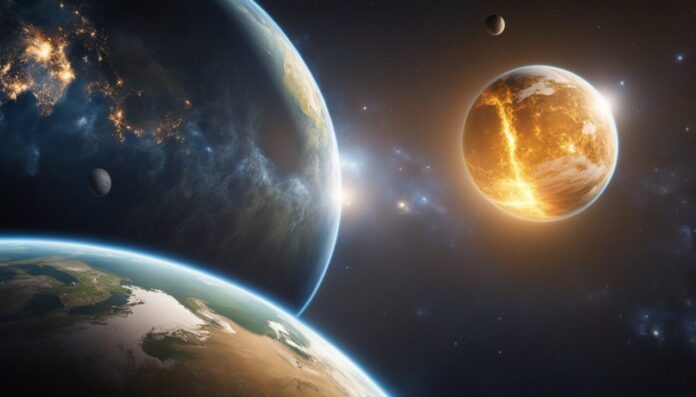
Theia is a hypothetical Mars-sized planet that is believed to have collided with Earth around 4.5 billion years ago. This giant-impact hypothesis is broadly accepted as the cause of the formation of the Moon.
However, what if Theia never hit Earth? What would have happened if the collision never occurred?
Some scientists believe that if Theia never hit Earth, it would have probably remained in the Solar System as a separate planet. This could have led to a completely different solar system, with different planets and moons.
Additionally, the impact of Theia on Earth is believed to have had a significant impact on the formation and evolution of our planet. Therefore, the absence of this collision would have led to a completely different Earth, with different geological features, different atmosphere, different evolution, and perhaps even without human life on Earth.
So, let’s explore this hypothetical scenario in more detail.
Let’s deep dive into this thought experiment starting with the potential formation of Earth without Theia.
Related:
Formation of the Earth without Theia
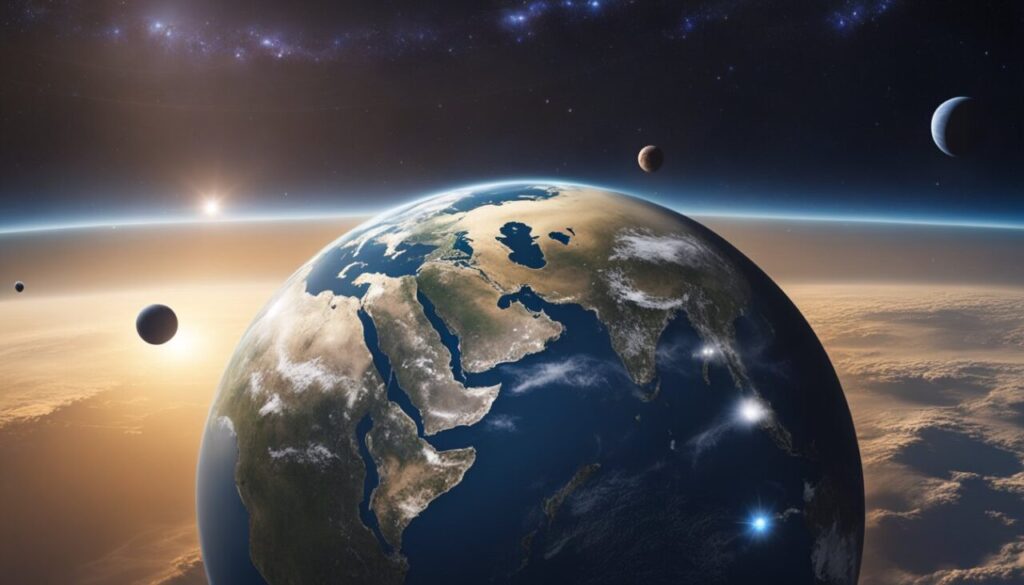
Planetary Accretion Process & Core Formation
The formation of the Earth without Theia would have been different from the current model of the giant impact hypothesis. The planetary accretion process would have resulted in the formation of a smaller Earth, with less mass and a smaller iron core. The accretion process would have been slower and less violent without the collision with Theia.
But this would have been only one of the consequences. Namely, without Theia collision, there would have been so many consequences that it is even hard to imagine.
Firstly, we would not have the moon, and as we’ve written in our article ‘What would happen if the Moon disappeared,’ the absence of the moon alone would cause many negative consequences for life on our planet and for the planet itself.
Note: Some scientists believe Earth once had two moons.
No Theia – No Moon!
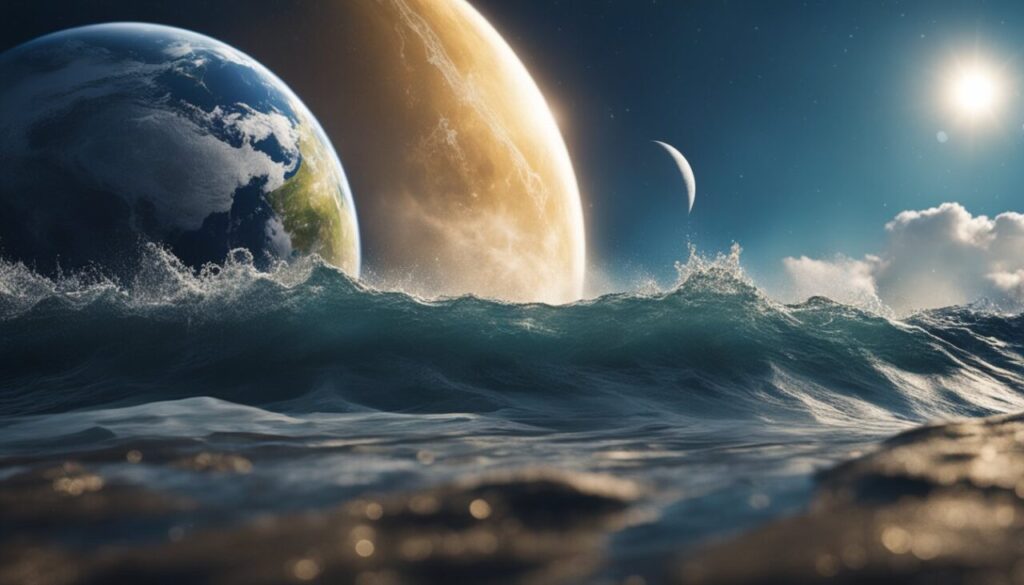
The Moon has a significant impact on Earth, and its absence would have awful consequences.
Here are some of the effects that would occur if Theia never hit Earth and without Moon:
Impact on Tides and Ocean Dynamics
Tides are caused by the gravitational pull of the Moon on Earth’s oceans. Without the Moon, tides would be much weaker, and ocean currents would be less predictable. This would have a significant impact on marine life and could disrupt the overall food chain.
Effects on Axial Tilt and Climate
The Moon helps stabilize Earth’s axial tilt, which affects the planet’s climate. Without the Moon, Earth’s axial tilt would be much more variable, leading to extreme climate conditions.
For example, the poles could experience long periods of darkness or sunlight, leading to the extinction of many species.
In addition, the Moon’s gravity helps slow down Earth’s rotation, which affects the length of a day. Without the Moon, a day on Earth would be different, leading to extreme changes in temperature and different fluctuations between day and night.
Geological Implications on Earth Without Theia
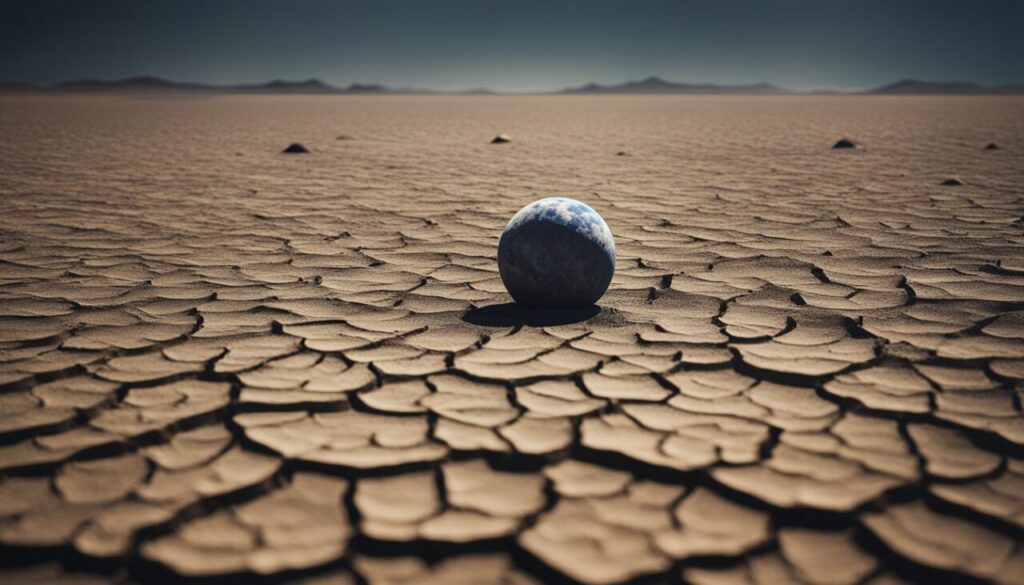
Plate Tectonics Variation
As mentioned, the impact of Theia on Earth is believed to have played a significant role in the formation of the Moon.
However, the impact may have also affected the plate tectonics of the planet. If Theia never hit Earth, the geological implications would have been very different.
In this giant impact hypothesis – the impact was responsible for the formation of a massive magma ocean that covered the planet.
The cooling of this ocean led to the formation of the Earth’s crust.
This cooling process would have been significantly different if Theia never hit Earth, leading to a different type of crust formation.
And it is exactly this type of crust that Earth has, which is one of the main factors for life on Earth.
In conclusion, the impact of Theia on Earth had a significant influence on the planet’s geological history. If Theia never hit Earth, the geological implications would have been different, leading to a different type of crust formation, less volcanic activity, and thus completely different evolution.
Evolution of Life and Theia

As mentioned, impact of Theia on Earth had a significant influence on the evolution of life on the planet. If Theia had never collided with Earth, the evolution of life would be completely different.
Origin of Life Theories and Theia Impact
The origin of life on Earth is still a mystery, but there are several theories that attempt to explain how life began. One theory is that life originated from simple organic molecules that formed in the early oceans. Another theory is that life was brought to Earth by comets or meteorites. If Theia had never collided with Earth, the conditions for the origin of life would have been different.
Additionally, one intriguing aspect of the Theia collision is its role in providing Earth with water. The impact could have brought water-rich materials from Theia to Earth, contributing to the formation of our oceans.
In a scenario where Theia never collided with Earth, the planet might have had a different water content, impacting the development of life as we know it.
Perhaps we could take this even further – concluding that without Theia’s collision on Earth, we wouldn’t be alive today and perhaps Earth would be a completely lifeless planet.
Besides that Theia’s collision certainly impacted whole Solar System.
Solar System Dynamics
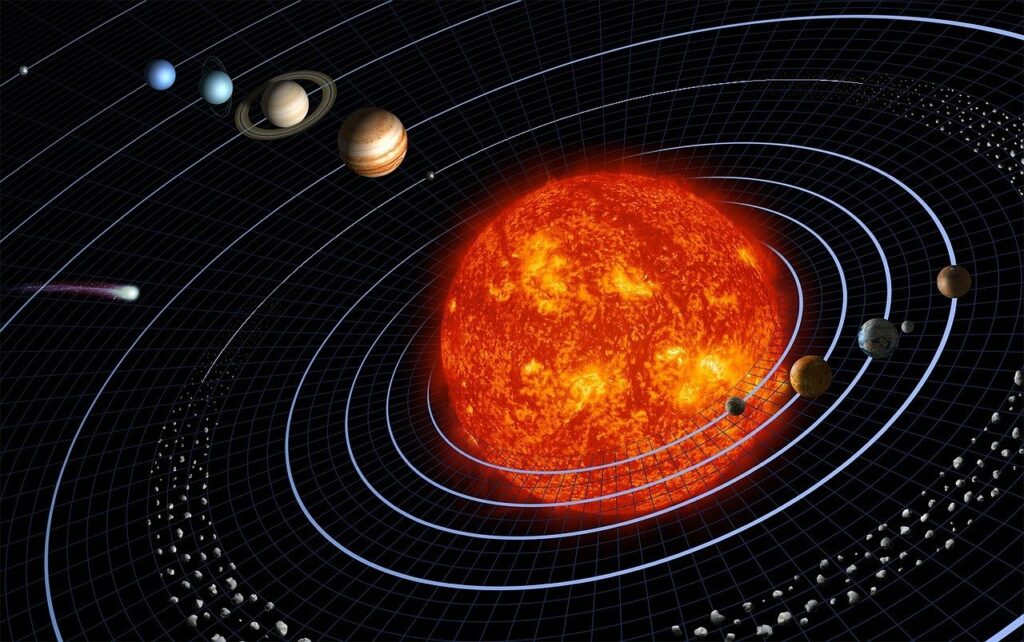
Gravitational Effects
If Theia had never hit Earth, it would have remained in its original orbit around the sun. This would have had significant gravitational effects on the rest of the solar system. Theia would have continued to exert gravitational force on the nearby planets, including Mars and Venus.
Over time, this could have caused changes in the orbits of these planets.
The gravitational effects of Theia may have also impacted the asteroid belt between Mars and Jupiter. Theia’s gravity could have caused asteroids to be pulled out of their orbits, potentially leading to collisions with other objects in the solar system.
This could again have had significant implications for the evolution of life on Earth, as asteroid impacts are thought to have played a role in different mass extinctions throughout history.
And while it is impossible to know exactly how things would have played out, it is clear that the gravitational effects of Theia would have had a ripple effect throughout the entire solar system.
This leads us to Earth’s magnetic field, and Theia’s impact also probably played a factor in the formation of that important magnetic field.
Earth’s Magnetic Field
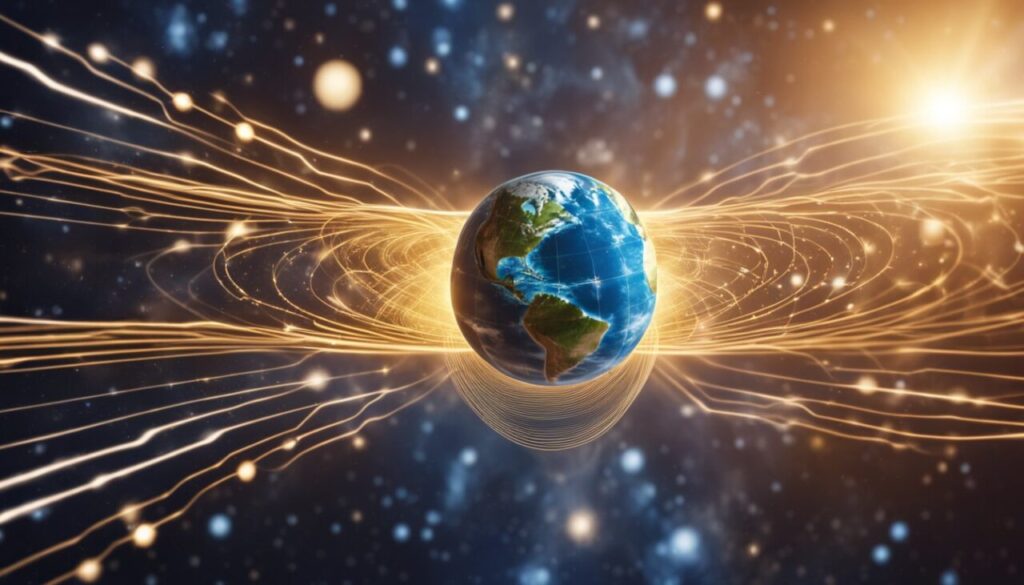
Earth’s magnetic field plays a crucial role in protecting the planet from hazardous radiation and geomagnetic activity that could affect satellite communication and the operation of power grids.
The magnetic field originates from potent, dynamic forces at the Earth’s core, forming a magnetosphere that protects us against the erosion of our atmosphere caused by the solar wind, particle radiation from coronal mass ejections, and cosmic rays from deep space.
Scientists have studied and tracked the motion of the magnetic poles for centuries, and there is evidence that the magnetic field has reversed its polarity many times throughout Earth’s history.
A magnetic reversal could have significant consequences for life on Earth, including increased exposure to cosmic radiation and a weakening of the magnetic shield that protects us from solar storms.
If Theia had never hit Earth, it is possible that the impact could have caused changes to the Earth’s core, which could have affected the magnetic field in the long term.
And this leads us to the final chapter and final consequence of the giant-impact hypothesis.
Atmospheric Composition and Climate
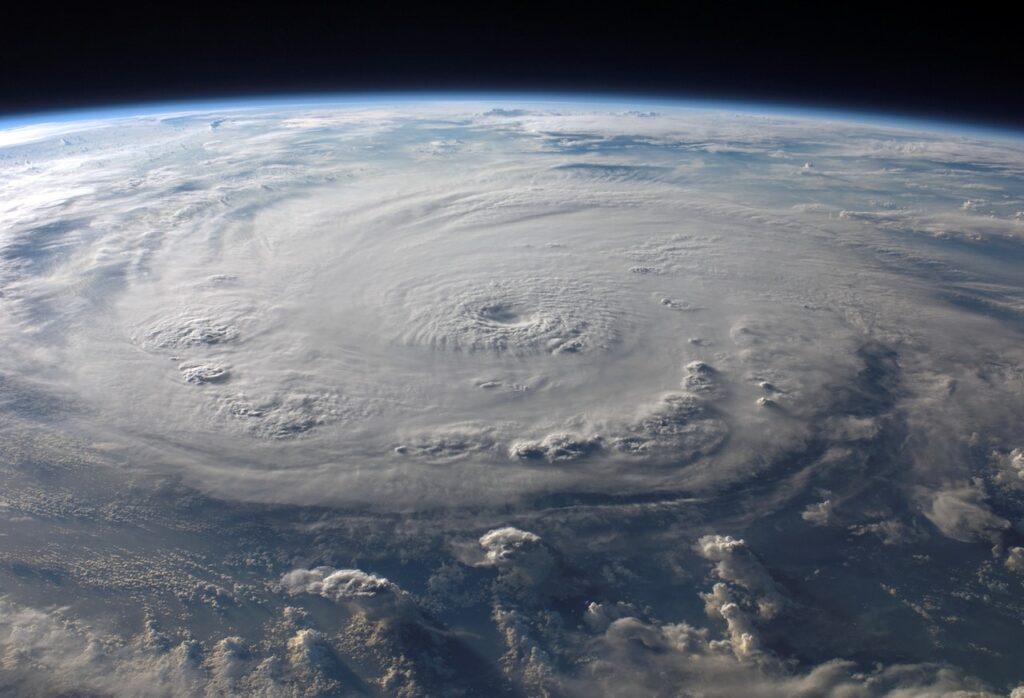
If Theia had never hit Earth, the planet’s atmospheric composition and climate would be markedly different. According to NASA, Earth’s atmosphere plays a crucial role in regulating the planet’s climate by absorbing and releasing heat.
The composition of Earth’s atmosphere is primarily made up of nitrogen, oxygen, and trace amounts of other gases such as carbon dioxide, methane, and water vapor.
Without the collision with Theia, Earth’s atmospheric composition would have been influenced by other factors such as volcanic activity, solar radiation, and the movement of tectonic plates. Additionally, Theia impact would have significantly contributed to changes in carbon dioxide in the atmosphere.
Overall, the absence of the Theia impact would have led to a different atmospheric composition and climate on Earth.
While it is difficult to predict exactly how these changes would have manifested, it is clear that the collision with Theia had a rather important influence on the evolution of Earth’s atmosphere and climate.
Conclusion
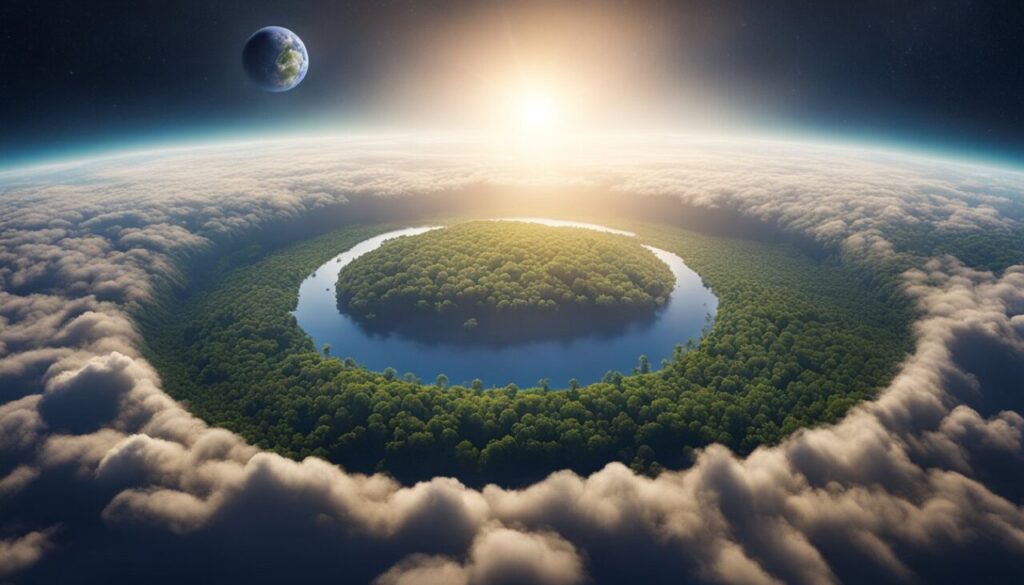
In the hypothetical scenario where Theia never collided with Earth, the consequences would span across the formation of the Moon, Earth’s geological evolution, the dynamics of the solar system, the evolution of life, and Earth’s atmospheric composition and climate.
The absence of Theia would have led to a smaller Earth with a weaker magnetic field, significantly altering plate tectonics and crust formation. The Moon’s absence would additionally result in weakened tides and unpredictable ocean currents, impacting marine life and climate stability.
Changes in Earth’s magnetic field and potential alterations in the solar system’s dynamics would have profound consequences for the planet’s habitability.
In summary, had Theia not collided with Earth, it’s likely that you wouldn’t be reading this article, as the existence of humans might not have occurred. Alternatively, if humans did exist, our evolution could have followed an entirely different trajectory.
Perhaps we would be more advanced; perhaps we’d still be in our early phases of primate evolution, and perhaps dinosaurs would still be around.
Who knows, but it is rather interesting to speculate and to ride through this thought experiment.
Note: If you’re interested in similar articles, on topic of “What if”, you can check:
- What would happen If The Moon disappeared
- What Would Happen If The Moon Exploded
- What Would Happen If Jupiter Disappeared
- What Would Happen If You Fell Into A Black Hole
- What Would Happen If The Earth Stopped Spinning
- What If Everyone On Earth Jumped At The Same Time
- What If Earth Had Rings
- What If A Needle Hit The Earth At The Speed Of Light
- How Many Earths Can Fit Inside The Sun
- What If Earth Had Two Moons




















